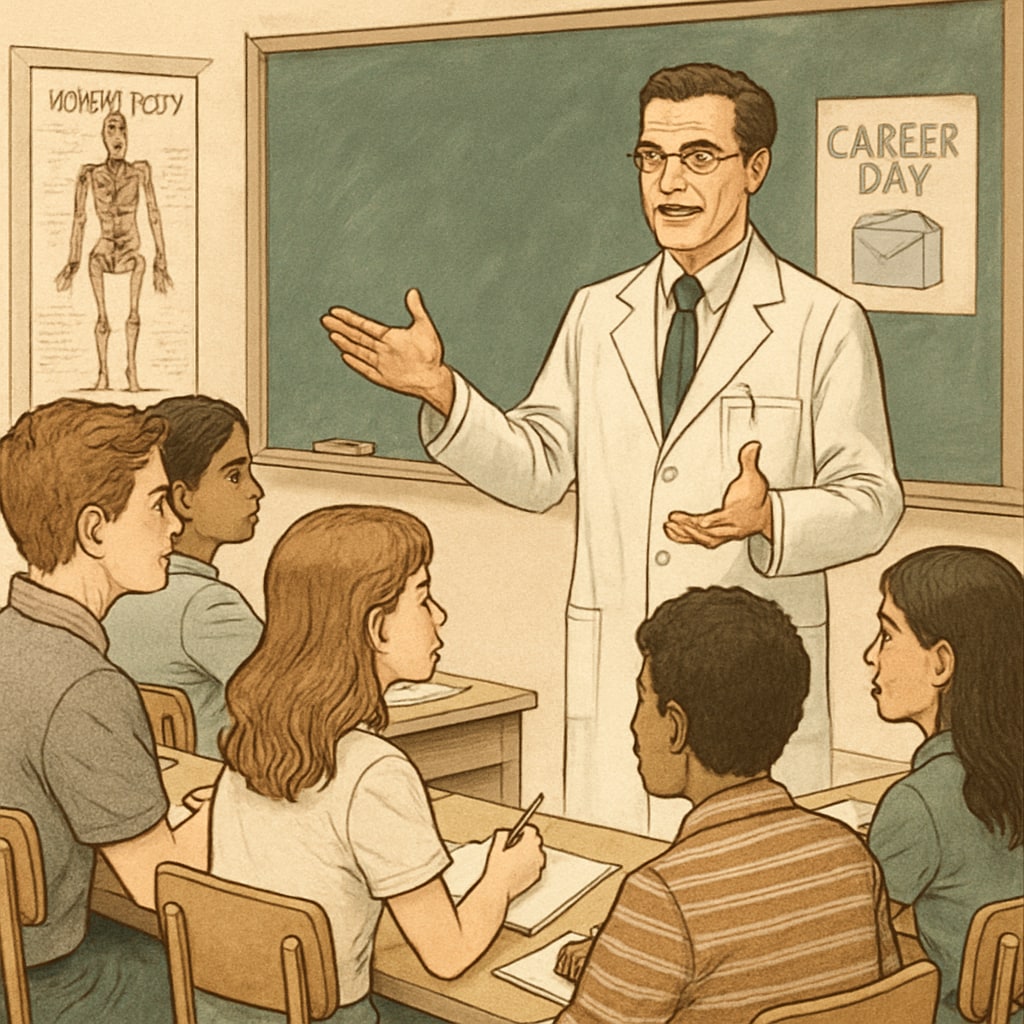Early exposure to medical career pathways is critical in shaping the aspirations of young students. Incorporating activities like doctor interviews, career counseling, and structured medical education during the K-12 phase can significantly influence students’ understanding of the profession. By laying this foundation early, educators can help students make informed decisions about pursuing a career in medicine.
Why Early Career Guidance Matters in Medical Education
Career planning during the K-12 phase is often overlooked, yet it is a crucial period for shaping long-term goals. For students interested in medicine, early exposure to the field helps them grasp the challenges and rewards of this demanding profession. Engaging with practicing doctors through interviews or workshops can provide a realistic yet inspiring view of the medical world.
Additionally, early career counseling equips students with the knowledge they need to navigate the long and rigorous educational path that medicine requires. For example, understanding the prerequisites for medical school, the significance of strong STEM (Science, Technology, Engineering, and Mathematics) skills, and the importance of extracurricular activities like volunteering in healthcare settings can be game-changing.

The Role of Doctor Interviews in Career Exploration
One of the most impactful methods of career exploration is through direct interaction with professionals. Doctor interviews allow students to ask questions about the realities of medical practice, from the day-to-day responsibilities to the emotional and intellectual demands of the job. These interactions can demystify the profession and ignite a deeper interest in the field.
For educators and career counselors, organizing such interactions can be as simple as inviting healthcare professionals for career days or arranging visits to medical facilities. These activities not only broaden students’ perspectives but also allow them to develop soft skills like communication and critical thinking.

Building a Systematic Framework for Medical Career Exploration
To maximize the impact of career planning, schools should consider implementing a structured framework for exploring medical careers. This framework could include:
- Workshops and Seminars: Invite medical professionals to share their experiences and insights.
- Internships and Shadowing: Offer opportunities for students to observe medical professionals in real-world settings.
- Curriculum Integration: Incorporate topics such as anatomy, public health, and medical ethics into science classes.
- Mentorship Programs: Pair students with mentors in the medical field for personalized guidance.
By adopting these strategies, schools can provide students with a comprehensive understanding of what a career in medicine entails. As a result, students can make better-informed decisions about whether this path aligns with their interests and strengths.
Conclusion: The Importance of Starting Early
The journey to becoming a medical professional is long and challenging, making early preparation essential. Through initiatives like doctor interviews, career counseling, and targeted educational programs, schools can empower students to explore their potential in the medical field. By starting early, we can inspire the next generation of dedicated and compassionate healthcare providers.
In conclusion, integrating medical career exploration into the K-12 education system is not just beneficial—it is necessary. It equips students with the tools and knowledge they need to succeed, ensuring that they enter the medical field with a clear sense of purpose and direction.
Readability guidance: Use concise paragraphs, lists for key points, and avoid excessive jargon. Ensure smooth transitions between sections using words like “however,” “in addition,” and “for example.”


